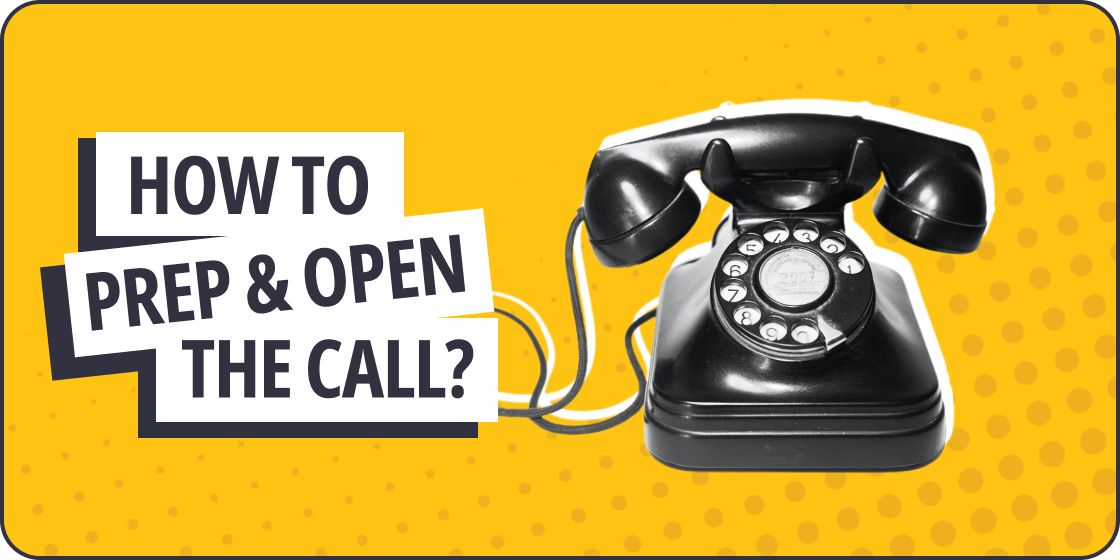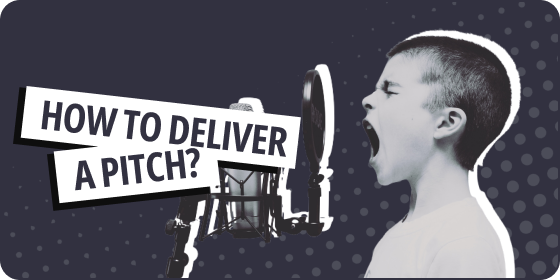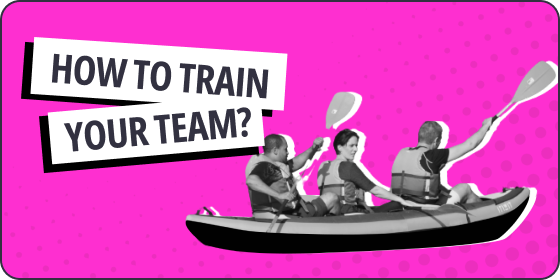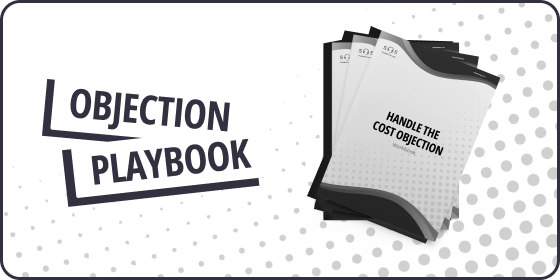How to get a commitment on every call
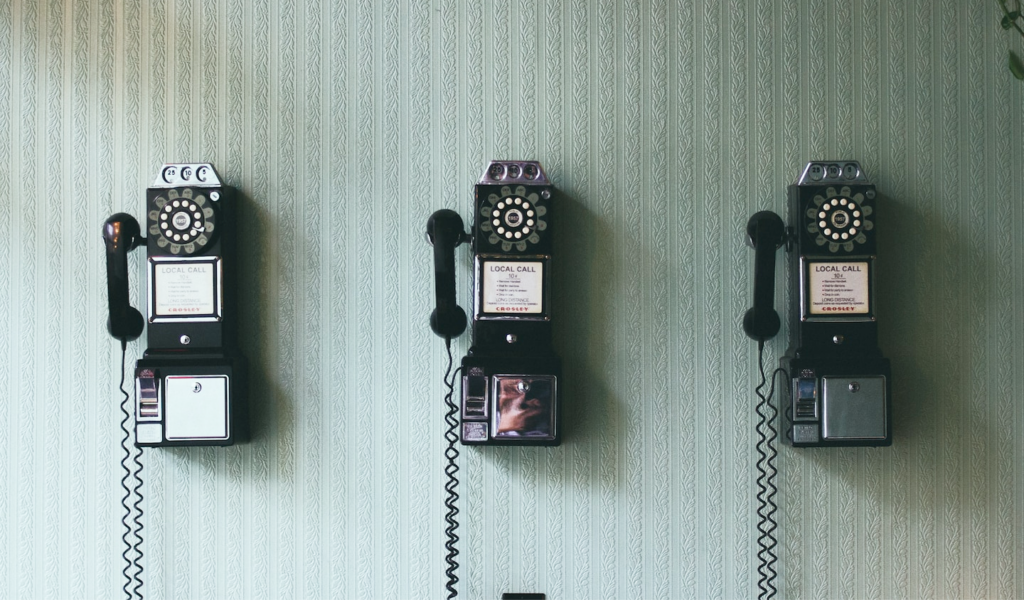
“A sale is made on every call. Either you sell the prospect on moving forward or they sell you on a reason they can’t. Either way, a sale is made. Only question is, who is the better salesperson; you or them?”
Failing to ask for a commitment is one of the biggest blunders that salespeople routinely make, as well as one of the costliest. As a sales professional, it is your responsibility to always maintain control of the sales process with you prospect so that you can; effectively manage your pipeline, be consistent in your revenue and, maybe most importantly, save yourself the headache of chasing prospects, getting ghosted and stressing about deals!
In this article, we are going to dive into the basics of asking for and getting commitments from you prospect on every single call you are on. Whether it is a cold call, discovery call, or closing call, you are obligated to gain a commitment and have a clear understanding of the process and next steps for both you and the prospect.
The 3 commitments you can get from a prospect:
- Money. This is the ultimate commitment in sales; getting the customer to exchange their money for your product or service.
- Time. Because time is money, this is nearly as valuable to the prospect as their money is. For most sales professionals, you will ask for time far more often than you do money. If a customer is not willing to commit their, or others, time then they are never going to be willing to commit their money.
- Information. You can never want a sale more than the prospect. If you have built up value, trust and need then they should be willing to share over information with you.
If the prospect is unwilling to give you one of these three then your sale is in big trouble and you need to overcome the concerns that they have while you have them on the call.
Now that we know the commitments we can get from a prospect, let’s dive into how you can go about getting them.
How to get a commitment from the customer:
Start with the end in mind:
What are you looking to get out of this call? As part of your pre call prep, identify the purpose of this next call. Is it to make the sale, book in a follow up call, get introduction to other members, or even ask for a referral. To do this, you must have awareness of your process, potential challenges and your customers buying process. Very few decisions are made unilaterally so do your homework to find out who else is potentially involved in that decision. Think back on previous prospects in similar businesses; who did they need to involve? Every call has a purpose, and it is up to the sales professional to identify and execute that purpose.
Commitment for Time:
- Discover. This is your initial demo where and the prospect engage in a conversation to better understand the potential benefits of a partnership. During this meeting you are going to want to better understand the needs and problems your customer currently faces. Likewise, your customer needs to uncover their true pain, cause of and your potential solution.
- Consensus. Very very few sales nowadays are made to only one decision maker within a business. By getting other people involved, you not only get a better overview and understanding of their needs but more potential champions in your corner. To get consensus, think about your 3 types of decision makers:
- The buyer. This is the person that will authorize this purchase. It could be their budget/money or their signature but, ultimately, they authorize this purchase. You need to be able to accurately identify this person as it is often different between businesses and can change based on your product and price point.
- The champion. Typically this is the person that will own the project. Even in B2C you have your champion. Think about selling a car to a college student. Chances are good that their parent is the one authorizing the purchase but if you can get that little English major in your corner he’ll sell mom for you and you’ll get that sale. You’ll still need to meet with the parent, but that is just a formality at that point.
- The end user. This can sometimes be the same as the buyer and the champion, but often it is someone else entirely.
If you haven’t met with all 3 of the above, then this needs to be a priority in your process. Get time in the calendar with them as soon as possible. Either as a group or 1 on 1.
“In my experience, the only way this is a good investment is if your sales team is going to use it. Who on your sales team can I reach out to in order to book in some time to discuss how they currently use their CRM?”
- Second voice. This is one of the most underused, yet powerful, tools in a sales professionals tool box. The second voice isn’t just your manager jumping on the call, it is anyone else in your company that can jump in a meeting to show the prospect they have team working for them and ensures that the right people speak to the right questions. This was something I picked up while selling mortgages and has been a huge help throughout my career.
- Sales engineer
- Integration specialist
- Loan processer
- Feature specialist
- Finance specialist
- Neighborhood specialist
And so on. You should know your customers’ “hot button” and there is a always a specialist in your company that can speak to this. Even if that is you, find something that is important to your customer and have someone jump on a call to discuss it.
“I know that the integration is very important to you. What might make sense is to schedule some time with Sarah, she is a wiz at this, so you can get clearer picture of what that would look like and she can answer any questions you might have. I have her calendar right here, is there a time that works for you to meet with her? Is there anyone else on your team you’d like to be on that call?”
- Feedback. This is probably the most common reason for a call in the sales world. It is where the prospect hasn’t made a decision yet and you are going to meet to see if the process is moving forward or not. I do not call this a “follow up” call as that implies that I am managing my prospect or that the chasing game has already begun. This call is for feedback.
The keys to this call are:
- Always have a time booked in
- Always have a purpose for the meeting beyond “decision”.
- Feedback from their team
- Feedback off the back of free trial
- Feedback after reviewing budget
- Feedback from your team on questions they had
- Always have new information. The sales persons job is to always add value so, even in a follow up call, you need to bring value to this call. Could be new insights, lower price, answers to questions. Doesn’t matter but it better be new!
“What is probably going to make sense is if you go away and speak to your team around the budget items and what I’ll do is speak to my team to see if there is a way we can offer this to all your users at a discounted rate. Let’s get time in the calendar to share the feedback on what we learned; do you have time Friday morning to share the feedback?”
As we said before, if you can’t get someone’s time you’re never going to get their money. Similarly, if you, as the salesperson, can’t ask for someone’s time then you aren’t going to be able to ask for their money effectively. If you aren’t willing to ask for the commitment you need, you are going to struggle in sales.
Commitment for Information:
There is always more information to get from the customer. Amateur sales people love to give and share information but they struggle with getting the customer to do the same. If you shadowed the average sales person you would see how much time in a day they spend gathering, creating and giving information to their prospects. They spend more time out of sales meetings, not preparing for a meeting, but preparing materials so the prospect doesn’t have to have a meeting. It is absolutely ass backwards. I’m not saying you can’t send over information to a customer but, like all things sales, it is a give and take. If they are going to take your time, then they have to give theirs. If they are going to take information, then they have to share it as well.
- Would this information be better shared in a meeting? Before you send that next email or put together that next powerpoint or vidyard, ask yourself this one question; would this be better shared in a meeting? If it’s a short answer or something you have pre built collateral on then, yeah, probably better to just fire off in an email. If it’s something that takes a bit more nuance then get a time booked in to cover it off.
- Are you working harder than they are? Look, the truth in life is, if you want something you have to work for it. If your prospect isn’t working for your sales then they don’t want it. Plain and simple. Again, this is something that I learned in my mortgage days and will ensure that your prospect is invested in your sale as well.
Always ask them to send you something.
- In B2c you can get paystubs or latest statement
- Selling solar, get a power bill
- Selling marketing, get an example of their current news letter
- Homes, have them email you a wish list
The call should end with you getting something from them not just you promising to send something to them.
“Ok, no worries, I’ll send you over some collateral to share with your team so you can start the process of selling this up the chain. While I’m getting that together, can you do me a favor, can you send me over a better idea of headcount and departments that would ultimately need logins? That will help me start putting together the information we’ll need for our next call.”
Use the agreement to exchange information and a gage for their commitment on this project.
Summary:
Sales is a series of small commitments that lead to the final commitment – the commitment to partner. If you do not get the smaller commitments along the way then you are either going to end up chasing a prospect that isn’t engaged (ghosting) or your going to close when the customer isn’t ready.
By using these tips and information you will be better able to control your sales process, stay in contact with your prospects and get the commitments you need to ultimately win the sale!







